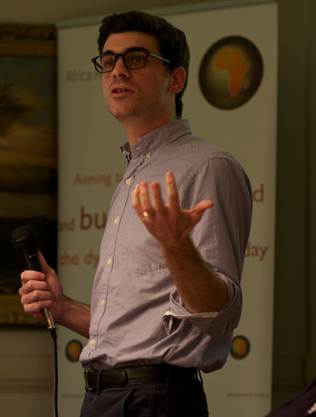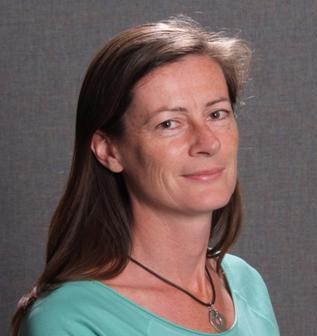This week is the #GlobalGoalsWeek which is a campaign to improve awareness about the UN Sustainable Development Goals (Global Goals or SDGs). The 17 Global Goals cover everything from Ending Poverty, to Climate Action and they have been called the closest thing the world has to a strategy. This week we’ll be publishing some of the SDG activity that’s been happening in Bristol. To follow what’s going on check out #BristolSDGs or #GlobalGoalsWeek we’re planning blog posts from amongst others the Mayor of Bristol, Bristol City Council’s SDG ambassador and other members of the Bristol SDG Alliance.
————————————
As the Global Goals week commences we consider how the work towards localising the SDGs in Bristol has developed in the last 9 months and look to share some lessons on the process of localisation.
In 2015 the 17 UN Sustainable Development Goals (SDGs) were ratified by 193 of the UN member nations. These goals set ambitious targets to address worldwide issues of sustainable development, such as social inequality, responsible and inclusive economic development and environmental protection. They were created for everyone, everywhere and have been described as ‘the closest thing the world has to a strategy’.
Who will be responsible for ensuring we achieve these goals and how will they be achieved?
In the realm of international agreements, national governments have traditionally been responsible for local implementation. But a combination of profound global demographic shifts and a sense that national governments are increasingly incapable of tackling complex global challenges due to domestic political wrangling has given rise to a global movement to place cities at the heart of efforts to tackle both local and global challenges. This movement, which is coalescing around a constellation of city-to-city networks (such as ICLEI, C40 and the Global Parliament of Mayors), is now grappling with the challenge of ‘localising the SDGs’. How can we usefully translate this global agenda into local practice in a way that meaningfully transforms lives?
This is the question we are working to answer through a University of Bristol funded project on Localising the SDGs for Bristol, in partnership with the Bristol Green Capital Partnership (BGCP), and Bristol City Council.
To date the project has involved engagement locally and internationally. Our previous blog post came after the Global Ambition, Local Action conference, held in Los Angeles which Allan Macleod, the Cabot Institute SDG Research and Engagement Associate, attended. Just over a month later he was also part of the hundred of delegates who gathered in Bristol for the Data for Development Festival. During three days of plenaries, breakouts and workshops the role and use of data and technology in achieving and monitoring the SDGs was discussed. Additionally, Mayor Marvin Rees showed his local support and commitment to the SDGs by announcing an SDG Ambassador in his Cabinet (Councillor Anna Keen).
The strong leadership and commitment to the SDGs from Bristol’s mayor has been complimented by many stakeholders across the city. Bristol boasts an SDG Alliance consisting of members from organisations across Bristol including some of the city’s anchor institutions with both universities, the City Council and the Bristol Green Capital Partnership represented as members of the Alliance. The network has been growing and now consists of well over 50 stakeholders from diverse backgrounds looking to mobilise SDG activity in Bristol. Through a series of interviews with key city stakeholders and alliance members, a Bristol Method+ report was released during the UN High Level Political Forum in July 2018. This report detailed the initiatives and actions that have occurred locally towards making the SDGs more mainstream in the city.
Another way the SDGs have been made locally relevant is through the One City Plan. Our research seeks to identify and support mechanisms for embedding the SDGs in local planning and governance processes by engaging with a wide range of stakeholders in the city.
Bristol City Council, a pivotal stakeholder is currently working to bring partners together for a new One City Plan. This Plan seeks to use the collective power of Bristol’s key organisations to achieve a bigger impact by supporting partners, organisations and citizens to help solve key persistent city challenges and improve the lives of Bristolians across the city. The core themes behind this plan align with the SDGs and it provides a great opportunity for Bristol to lead nationally and internationally on the SDGs. As a result, the Goals were integrated into the plan and mapped onto Bristol’s local priorities. By building on the work in ‘Hacking the SDGs for US Cities’, 75 of the 169 SDGs targets were found to be directly relevant to Bristol. These targets are being blended together with locally-developed priorities to form the One City Plan goals to result in ‘Bristol’s SDGs’.
Our work with Bristol city council has shown three important features of localisation. Firstly, the SDGs largely overlap with the remit of most city councils. As a result of this, the most cost effective, and beneficial method of localisation is a translation of local priorities onto the goals and the integration of the goals into the local priorities of the city. Lastly, the SDGs provide an opportunity for city leaders to engage in discussions around the same topic. They provide a global language for city leaders to share learning and best practices across contexts and borders. This is especially important as cities are increasingly aiming to take a more prominent role in international leadership.
During our project, it has become clear that Bristol has developed a solid foundation for SDG localisation and has begun to be a global leader in implementing the SDGs. However, it is a particularly exciting time to be working collaboratively on implementing the SDGs in Bristol as the city will be hosting the Global Parliament of Mayors Annual Summit (GPM) in October. The GPM will provide Bristol with an additional opportunity to showcase its leadership and demonstrate its credentials as an important international city that is working to improve the lives of all its citizens, while also working to tackle the challenges that we face as a global community.
What experiences do you have of the SDGs abroad or in Bristol? Do you have an ideas or lessons that can be applied to Bristol? If you have any further questions or comments, feel free to get in touch at allan.macleod@bristol.ac.uk.








